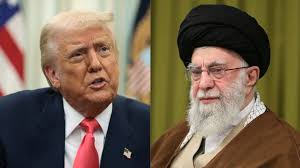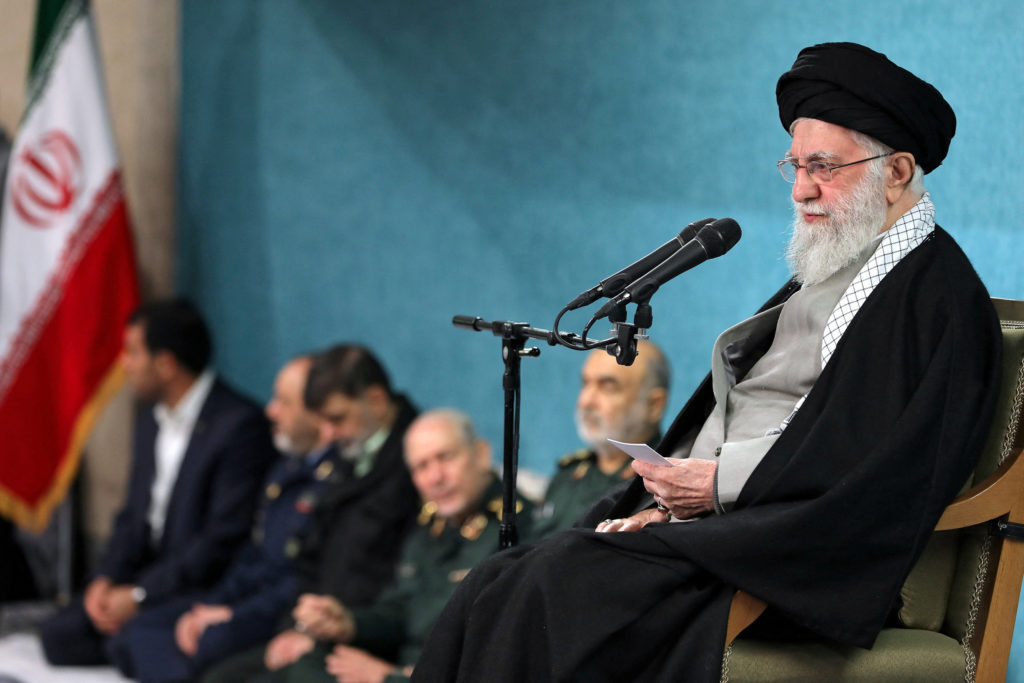Iran’s Supreme Leader, Ayatollah Ali Khamenei, firmly rejected any possibility of negotiating a nuclear deal with the United States, stating that the U.S.’s demands are unacceptable and aimed at limiting Iran’s military and regional influence. His statements, made in a series of posts on X (formerly Twitter), come in response to President Donald Trump’s renewed push for diplomatic engagement with Tehran.
Khamenei Condemns U.S. Demands
Khamenei criticized the U.S. government’s approach, calling it coercive and manipulative. He argued that Washington’s intent is not to resolve conflicts but rather to impose its own conditions on Iran’s defense and international activities.
“Such negotiations aren’t aimed at solving issues,” Khamenei stated. “Their aim is to exert their dominance and impose what they want.”
According to Khamenei, the U.S. is seeking to control Iran’s missile range and dictate the nation’s diplomatic engagements. He emphasized that Iran would not accept restrictions on its military capabilities or regional alliances.
“Telling us not to do this, not to meet that person, not to go there, not to produce this, and to limit the range of our missiles to a certain extent—how could anyone accept such things?” he questioned.

Trump’s Renewed Efforts for a Deal
Khamenei’s rejection follows Trump’s announcement that he had sent a letter to Iran’s leadership urging them to engage in talks. Trump also warned that military consequences could follow if Iran does not reach an agreement.
“We are down to the final moments of negotiating with Iran,” Trump said on Friday. “I hope we don’t have to resort to military action.”
In response, National Security Council spokesman Brian Hughes emphasized the administration’s position that Iran should prioritize its people over external conflicts.
“President Trump made it clear that there are two ways Iran can be handled: militarily or through a deal,” Hughes said in a statement.

Reactions from Experts and Officials
Behnam Ben Taleblu, director of the Foundation for Defense of Democracies’ Iran program, urged Trump to proceed with caution when dealing with Tehran. He warned that Iran might use negotiations as a stalling tactic while advancing its nuclear program.
“Tehran has set a trap for him, hoping to lure him into endless diplomacy that is used to blunt maximum pressure and dampen the credibility of an American or Israeli military option while buying time to creep towards a nuclear weapon,” Taleblu stated.
In February, Trump acknowledged concerns over Iran’s nuclear ambitions, suggesting that the country is edging closer to nuclear weapons capability. However, he reassured the public that the U.S. is committed to preventing this development.
Reinforcing the ‘Maximum Pressure’ Campaign
To increase economic pressure on Tehran, Trump signed an executive action directing the U.S. Treasury Department to impose additional sanctions. These measures, which were part of the original maximum pressure campaign initiated during Trump’s first administration, aim to further cripple Iran’s oil exports and financial system.
“We are reinstating and reinforcing maximum economic pressure,” Trump stated. “This will ensure Iran feels the full weight of its actions.”
Anniversary of Robert Levinson’s Disappearance
The U.S.-Iran tensions are also underscored by the upcoming 18th anniversary of the abduction of retired FBI Special Agent Robert “Bob” Levinson from Kish Island, Iran. Levinson’s disappearance remains a significant issue in U.S.-Iran relations.
On Friday, the FBI Washington Field Office posted on Facebook, stating:
“We remember Bob and his family every day.”
The FBI continues to offer up to a $5 million reward for information leading to Levinson’s recovery. Meanwhile, the U.S. State Department’s Rewards for Justice program is offering up to $20 million for any leads regarding his location or those responsible for his abduction.
Frequently Asked Questions
Why did Iran’s Supreme Leader reject nuclear talks with the U.S.?
Ayatollah Ali Khamenei rejected the negotiations, claiming that the U.S. is trying to impose restrictions on Iran’s military capabilities and foreign relations rather than genuinely seeking a resolution.
What did President Trump propose to Iran?
Trump sent a letter to Khamenei, urging Iran to negotiate a nuclear deal and warning of potential military consequences if an agreement is not reached.
What is the ‘maximum pressure’ campaign?
The ‘maximum pressure’ campaign refers to the U.S. strategy of imposing strict economic sanctions on Iran to force compliance with international demands regarding its nuclear program and regional activities.
How is the U.S. responding to Iran’s rejection of talks?
The Trump administration is reinforcing economic sanctions and keeping military options open while urging Iran to reconsider negotiations.
What happened to Robert Levinson?
Robert Levinson, a retired FBI agent, was abducted in Iran in 2007. The U.S. is still seeking information about his whereabouts, offering financial rewards for credible leads.
Conclusion
The ongoing tension between the U.S. and Iran has once again escalated, with Supreme Leader Khamenei outright rejecting negotiations and President Trump reaffirming his commitment to maximum pressure. With economic sanctions tightening and military threats looming, the future of U.S.-Iran relations remains uncertain.

